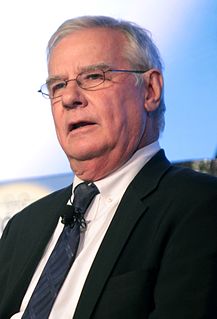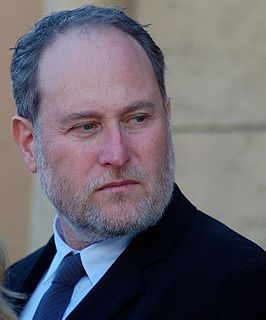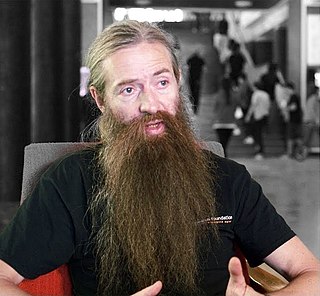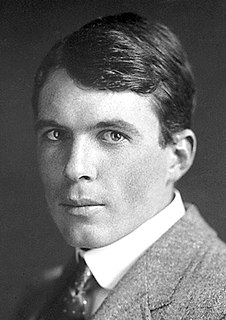A Quote by Steven Wright
Why do scientists call it research when looking for something new?
Quote Topics
Related Quotes
We sometimes talk as if "original research" were a peculiar prerogative of scientists or at least of advanced students. But all thinking is research, and all research is native, original, with him who carries it on, even if everybody else in the world already is sure of what he is still looking for.
The conference also has a moral duty to examine the corruption of science that can be caused by massive amounts of money. The United States has disbursed tens of billions of dollars to climate scientists who would not have received those funds had their research shown climate change to be beneficial or even modest in its effects. Are these scientists being tempted by money? And are the very, very few climate scientists whose research is supported by industry somehow less virtuous?
The historian of science may be tempted to claim that when paradigms change, the world itself changes with them. Led by a new paradigm, scientists adopt new instruments and look in new places. even more important, during revolutions, scientists see new and different things when looking with familiar instruments in places they have looked before. It is rather as if the professional community had been suddenly transported to another planet where familiar objects are seen in a different light and are joined by unfamiliar ones as well.
People often ask me why I persisted in doing research on a subject that was so controversial. I frequently respond by telling them that only a few scientists are granted the great fortune to pursue topics that are so new and different that only a small number of people can grasp the meaning of such discoveries initially.
There is a spiritual capacity in carbon as there is a carbon component functioning in our highest spiritual experience. If some scientists consider that all this is merely a material process, then what they call matter, I call mind, soul, spirit, or consciousness. Possibly it is a question of terminology, since scientists too on occasion use terms that express awe and mystery. Most often, perhaps, they use the expression that some of the natural forms they encounter seem to be "telling them something."
I feel very strongly indeed that a Cambridge education for our scientists should include some contact with the humanistic side. The gift of expression is important to them as scientists; the best research is wasted when it is extremely difficult to discover what it is all about ... It is even more important when scientists are called upon to play their part in the world of affairs, as is happening to an increasing extent.


































